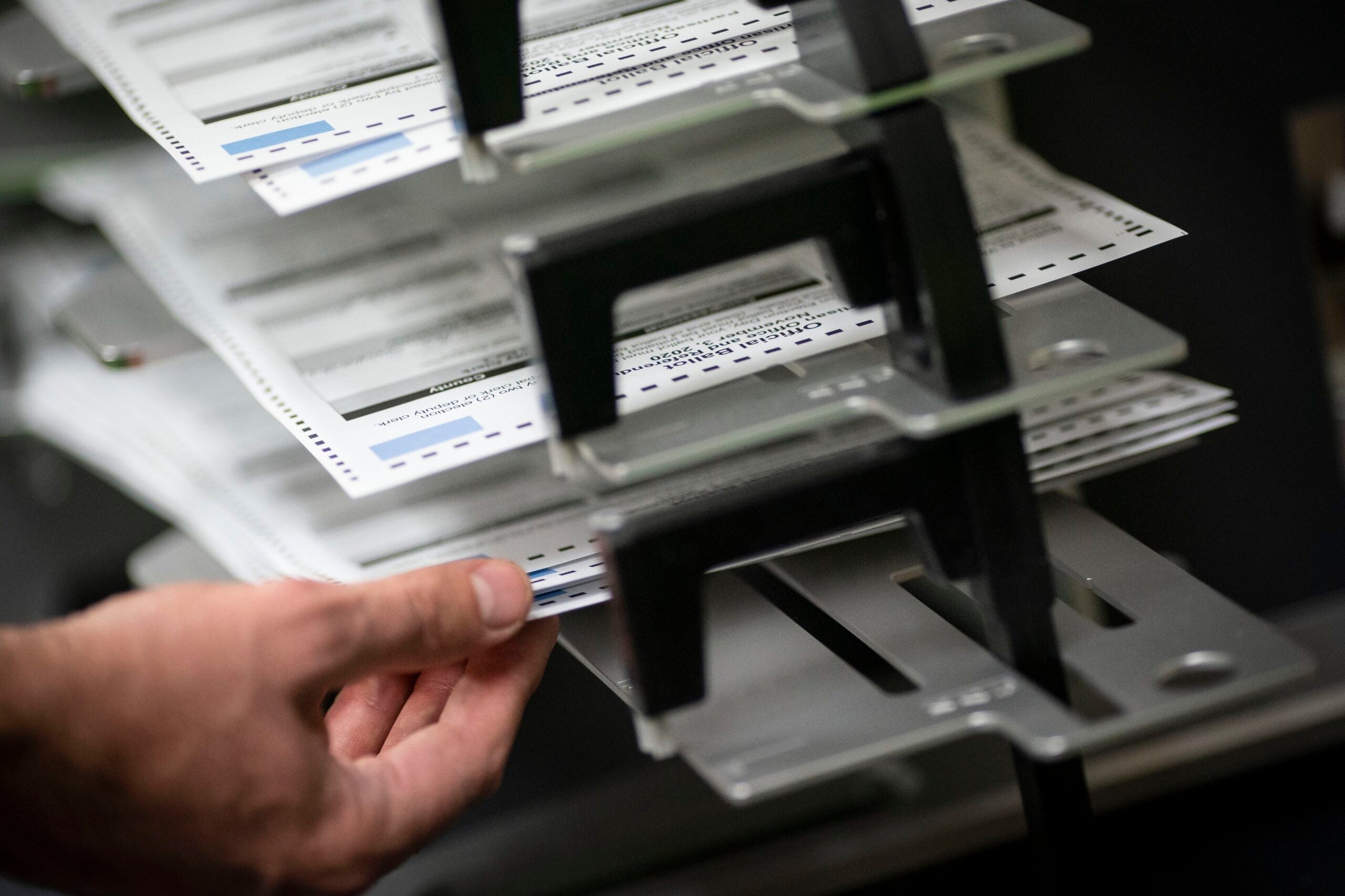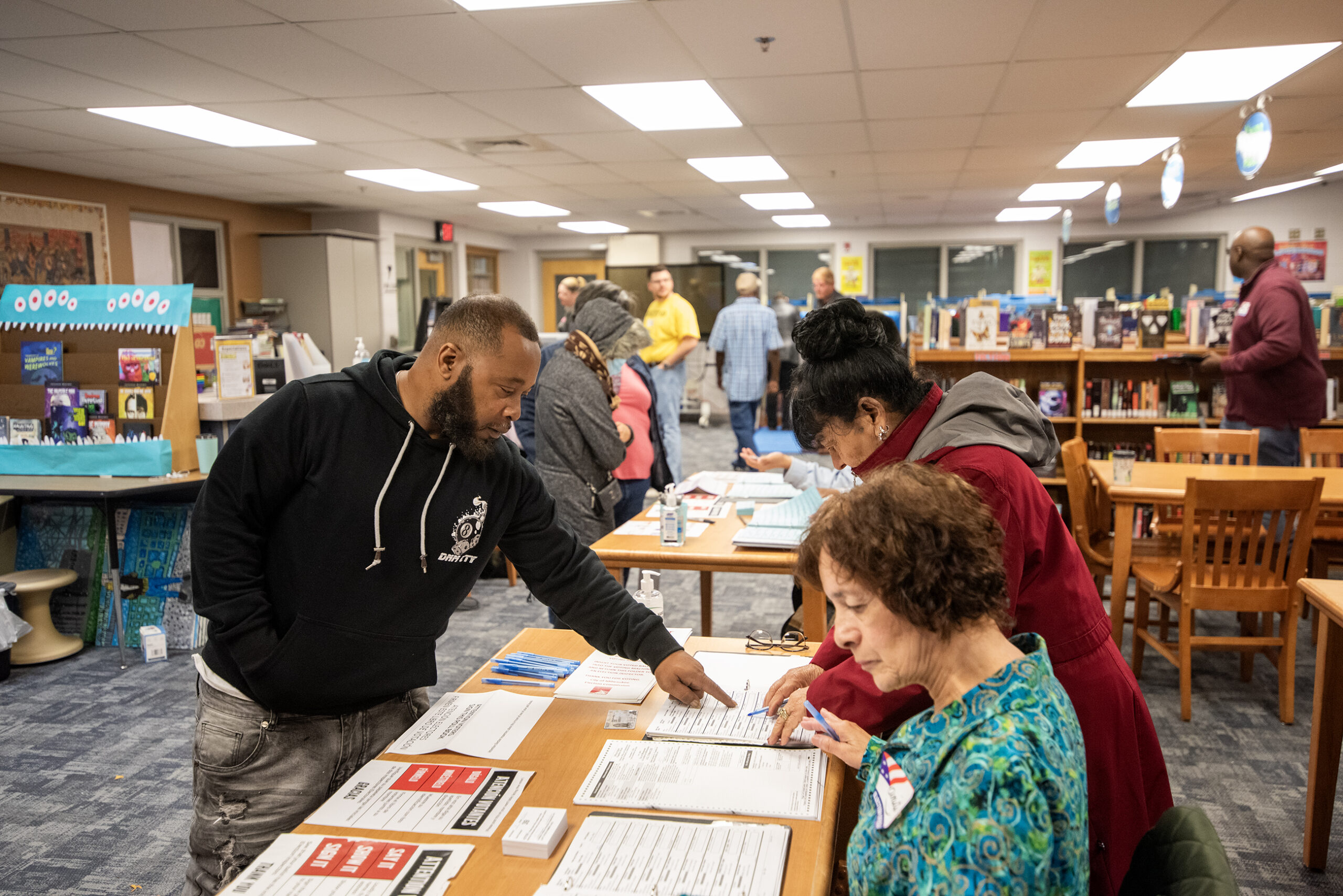As clerks prepare for upcoming elections, a recently released opinion from Wisconsin’s attorney general is providing some clarity about what’s allowed under changes to the state constitution.
One amendment approved by voters in April says only election officials designated by law can perform tasks needed to conduct an election. But that language has raised questions about exactly who counts as an election official and exactly what counts as an election-related task
In an opinion published late last month, Wisconsin’s Democratic Attorney General Josh Kaul cited state law, which defines an election official as “an individual who is charged with any duties relating to the conduct of an election.”
News with a little more humanity
WPR’s “Wisconsin Today” newsletter keeps you connected to the state you love without feeling overwhelmed. No paywall. No agenda. No corporate filter.
He concluded that such officials must handle work that’s needed to “lead” or “direct” elections.
But Kaul wrote that local clerks can outsource certain tasks, like letting volunteers do mailing and clerical work, allowing IT professionals to handle software and having police transport ballots.
And the opinion clarifies that clerks can work with vendors on the “layout and printing” of ballots.
Dane County Clerk Scott McDonell said the opinion provided much-needed guidance.
“The last thing we want to do is have 72 different ways of doing something,” McDonell said, referring to the clerks who handle elections in all of Wisconsin’s counties.
He said the opinion makes clear clerks can delegate some tasks.
“For example, if I outsource the printing, am I the one approving what’s printed, am I the one deciding the quantity? Things like that,” McDonell said. “Under this opinion, that would be fine, as long as the clerk is still reserving the right to make the decisions.”
Kaul issued the opinion in response to a request from Dane County officials. It’s advisory in nature, which means it wouldn’t be binding if people end up suing over how Wisconsin’s constitutional amendments are implemented.
While a court can give the AG’s opinion “some weight,” it doesn’t have to follow it, said Madison City Attorney Mike Haas, an expert in election law.
“But in my view, it’s the best guidance, most authoritative guidance that we’ve received so far on the constitutional amendment,” said Haas, who formerly served as staff counsel to the Wisconsin Elections Commission. “So personally, I think it’s very helpful for local courts to have that guidance in hand as they prepare for the fall elections.”
Wisconsin’s Elections Commission has yet to issue guidance on how clerks should respond to the new constitutional changes.
The amendment concerning election officials was one of two voting-related proposals approved by Wisconsin voters this spring. The other measure barred accepting private grants to fund election equipment and administration in Wisconsin.
Wisconsin’s Aug. 13 primary will determine who advances in congressional and state legislative races. Just a few months later, on Nov. 5, voters will cast their ballots in the general election, which includes the presidency and a U.S. Senate seat representing Wisconsin.
Wisconsin Public Radio, © Copyright 2025, Board of Regents of the University of Wisconsin System and Wisconsin Educational Communications Board.







